



















And the finalists are”
Lana Thompson - Editor
November edition
Welcome to the latest edition of the Infinity Gaming Magazine and as we near December we have amazingly with the superb support of our brilliant judges announced the finalists for the 2026 charity focused International Gaming Awards (IGA).
I believed we would get 900 nominations, how wrong I was we topped 1,000 in the end. Now in its 19th year the IGA is such a special evening, it is the awards event of the year and cannot wait to welcome you all to the Intercontinental Hotel in Barcelona for what will be the best ever.
It was a mamouth task for the judges to get to the finalist list and to those who made the finals you impressed our judges, so is it your time to be called a winner of the prestigious Gold Star? We will find out come the night.
As ever we cannot do what we do without the support of our wonderful spon-
sors; Betconstruct, Digitain, 1xBet, Alea, Spribe, Pragmatic Play, Pilot Games, Interblock, Gamomat, Yggdrasil, Videoslots, IGT, Light &Wonder, Play’n GO, Delasport, BETER, Soft2Bet, Melco Resorts and BGaming.
Inside the magazine we introduce you to the full list of finalists for the 2026 IGA.
2026 will also welcome back the London Gaming Congress (LGC) now in its second year and with the huge impact the event had in March the next edition is going to be massive and we already have speakers lining up and sponsors confirming for the 18th March date held again at the stunning iconic Savoy Hotel.
Thank you Continent8 and IGT for being the first two confirmed sponsors.
If you are interested in taking part as a speaker or sponsor please do contact the team.
Now to the magazine and we have some superb articles and news as ever, so I will not keep you from reading the latest edition.
Enjoy the latest edition of the magazine and until next time, when we wave goodbye to 2025 and welcome in the New Year.
“To Infinity and Beyond!”
Regards, Lana
The Editor & Chief
CONTACT US
Clever Duck Media Centrix@Keys
Keys Park Road
Staffordshire WS12 2HA UK Tel: +44(0)1543 478 889
PRODUCTION
Clever Duck Media Centrix@Keys
Keys Park Road
Staffordshire WS12 2HA UK
PUBLISHING
Infinity Gaming Magazine is operated by © Clever Duck Media Ltd ® Company Reg. No. 687 1018 (Registered in England) V.A.T reg. no 972 6372 91
Sponsorship Opportunities Colin@cleverduckmedia.com
Business Partnerships Svetlana@gaming-awards.com
Marketing & Advertising Maria@cleverduckmedia.com
Editorial Content & PR media@cleverduckmedia.com





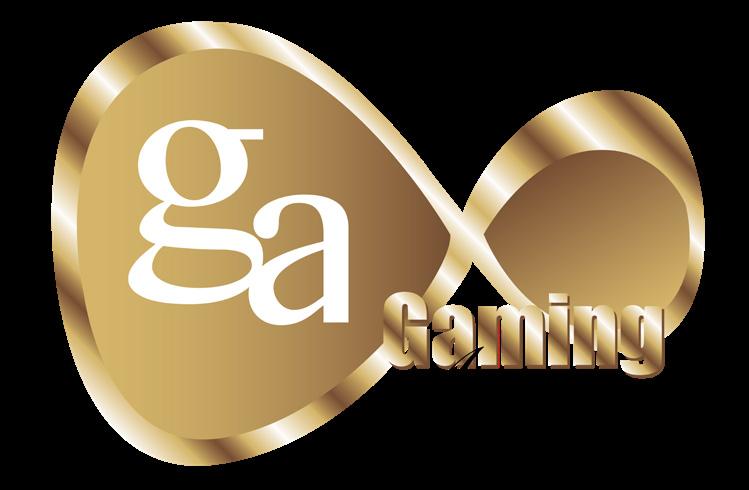
Meet the Industry professionals charged with judging the nominations for the 2026 International Gaming Awards which received a record 1,000+ entries!
So in no particular order:







Mattias Wedar CEO LeoVegas Group



Simon Westbury Strategic Advisor 1xBet

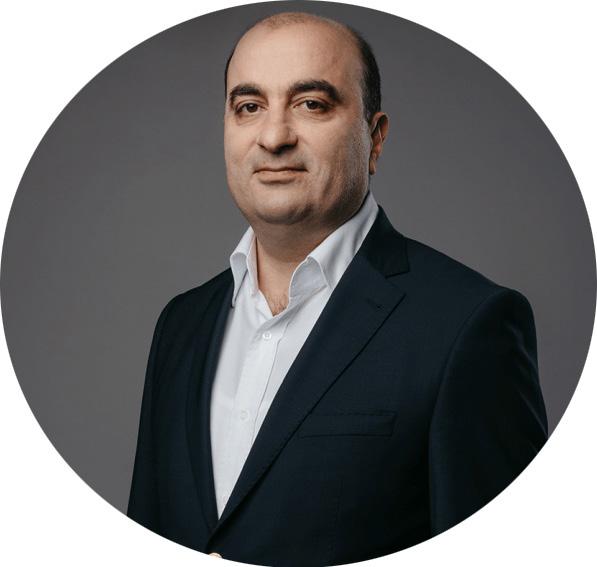

Paul Dolman-Darrall CEO g.games





Fiona

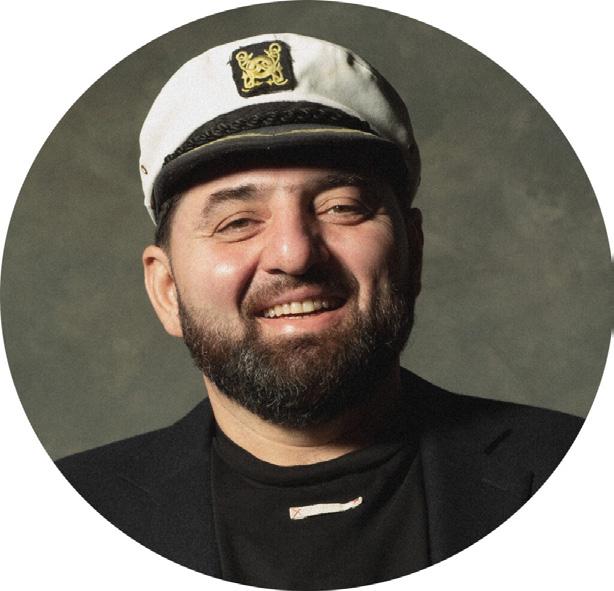







The King of the Gods returns in this electrifying 7x7 slot featuring wins of up to 10,000x.






There still remains a few days to get your nominations in, the deadline is the 28th October so DO NOT delay and go to www.gaming-awards.com. Always free to enter this charity focused event.









1w Partners
1xBet
Affilka by SOFTSWISS
Already Media
Better Collective
Bojoko
Casino Guru
Gamblers Connect
Revpanda Group
Wedia Group
ARRISE
Boomerang Partners
Flutter Entertainment - Do More Together
Fundación Sportium
Game Lounge
Interblock
Lottoland
Melco Resorts & Entertainment
Vegas Legends
Wazdan
2RBO Affiliates
7StarsPartners
247PARTNERS
Boomerang Partners
Checkd Group
Control F5
Interblock
MioMedia Affiliates
WOWPartners

1xBet
Betsson Group
Coolbet
GemBet
Immense Group
Spreadex Sports
Winbet
WinSpirit Casino

Brand
Affigates
BetMGM
Betsson
Cherry
High Roller Technologies
Melco Resorts
Slots temple
Tooniebet
Vegas Legends
Brand
BETER
Hub88
Interblock
PopOK Gaming
Pragmatic Play
Push Gaming
Soft2Bet
Softswiss
Spribe
Yggdrasil
Abelson Sports
Continent 8 Technologies
Hub88
Interblock
Lotus igaming group
Mediacle
MyAffiliates
Pragmatic Solutions
Pronet Gaming
Sportradar
1x2 Network
Aviatrix
Buck Stakes Entertainment
Evoplay
Galaxsys
Million Games
Pascal Gaming
PopOK Gaming
Pragmatic Play
SPRIBE
1xBet
BETBY
BETER
DATA.BET
Oddin.gg

Global Gaming Company
BetConstruct
BETER
Betsson Group
Bragg Gaming Group
Digitain
IGT
Interblock
Pragmatic Play
Soft2Bet
Sportradar
SPRIBE
Tangam Systems
Alea
BetConstruct
Entain
EveryMatrix
GR8 Tech
Hub88
IGT PlayDigital
Platipus Gaming
Relax Gaming
Relum
SOFTSWISS
St8
Bally’s
Betsson Group
ComeOn Group
Gamblers Connect
Game Lounge
Immense Group
Revpanda Group
Storm International
Vegas Legends

BetGames - Lucky Lenny’s Jetpack
BGaming – Aviamasters
Entain - Devil’s Lucky Spins
Gaming Corps -3 Pigs of Olympus
GAMOMAT - Crystal Ball Flaming Link
IGT - Money Gong
PearFiction Studios - Squealin Riches 2
Play’n GO - Crabby’s Gold
PLAYBOOK FUSION - Playbook Football
Playtech - Oink Oink Oink
Pragmatic Play - Sweet Rush Bonanza
SPRIBE – Aviator
Alea
ARRISE
BGaming
Bragg Gaming Group
Diamond Game
Digitain
EveryMatrix
mkodo
Play’n GO
Pronet Gaming
SOFTSWISS
The Mill Adventure
18Peaches
Pragmatic Play
BGaming Yggdrasil Gaming
Design Works Gaming
ELA Games
Entain
Evoplay
Fortune Factory Studios
Galaxsys
Gameburger Studios
GAMOMAT
Million Games
Peter & Sons
BetConstruct
Bragg Gaming Group
Delasport
Digitain
EveryMatrix
GeoComply
Hub88
Play’n GO
Playtech
Pragmatic Play
SOFTSWISS
Sportradar
Innovator of the Year (Operator)
Affigates
Already Media
Betsson Group
Cherry.com
ComeOn Group
Pilot Games
RocketPlay Casino
Wildz Group
Mobile Operator of the Year
Betsson Group
Bragg Gaming Group
Ganadu Gaming
LeoVegas Group
ToonieBet
Wildz Group
Innovator of the Year (Supplier)
18Peaches Alea ARRISE BETBY Blask
Delasport Interblock Play’n GO Relax Gaming
Soft2Bet Yaspa Yggdrasil Gaming
Mobile Sports Product
1xBet Abelson Sports BetHero Kiron Interactive PLAYBOOK FUSION
Pragmatic Play


Live Casino of the Year
BBIN
BetGames
Betsson Group
Creedroomz
ElCasino
Imagine Live
Playtech
Pragmatic Play
Pronet Gaming
Multi-Channel Provider
BetConstruct
Bragg Gaming Group
Digitain
EveryMatrix
Hub88
IGT
Light & Wonder
Pilot Games
Playtech
Pragmatic Play
Pronet Gaming
Lottery Product of the Year
BBIN
Brightstar Lottery
Brightstar Lottery
Lottoland
Pilot Games
Sportradar
TVBET
Online Casino Operator of the Year
1xBet
BetMGM
Betsson Group
Cherry.com
ComeOn Group
Coolbet
Entain
LeoVegas Group
RocketPlay Casino
ToonieBet
1xBet
BBIN
Entain
WinSpirit Casino

Affigates
Already Media
BetMGM
Casino.online
Cherry.com
Devil Fish
Fair Sky Partners Ltd
Mega Riches
Vegas Legends
Safe Gambling Award
BETER
Betsson Group
Bragg Gaming Group
Coolbet
Gamblers Connect
Immense Group
Melco Resorts & Entertainment
Mindway AI
OpenBet
Sportradar
Yaspa
Slot Provider of the Year
Funky Games
Gaming Corps
GAMOMAT
Gamzix
IGT
Pascal Gaming
Platipus Gaming
Play’n GO
Pragmatic Play
TaDa Gaming

Rising Star of the Year (Supplier)
18Peaches
Betcomply
Blask
Elantil
Funky Games
Gamzix
GeoLocs
Highlight Games
Octoplay
Pateplay
Peter & Sons
TaDa Gaming
Slots Operatorof the Year
1xBet
BBIN
Betsson Group
Entain
Ganadu Gaming
Mr Vegas
Winbet
RNG Casino Supplier
1X2 Network
18Peaches
BetConstruct
BetGames
Bragg Gaming Group
Design Works Gaming
Entain
EveryMatrix
Pascal Gaming
Play’n GO
Pragmatic Play
Sports Betting Operator
1xBet
Betandyou
Betsson Group
ComeOn Group
GemBet
Winbet
Sports
BETBY
BetConstruct
Delasport
Digitain
EveryMatrix
IGT PlaySports
OpenBet
Playtech
Pronet Gaming
SOFTSWISS
Sportradar
BetConstruct
Bragg Gaming Group
Continent 8 Technologies
Digitain
EveryMatrix
Hub88
IGT PlayDigital
OpenBet
Pragmatic Play
SOFTSWISS
Sportradar
Yggdrasil Gaming

Affigates (Betconstruct)
BGaming
Buzz Group
ELA Games
Evoplay
Pateplay
PearFiction Studios
The Mill Adventure
Yggdrasil Gaming

Interblock
Internet Vikings
OpenBet
Pilot Games
Tangam Systems
Wazdan
Betsson Group
BGaming
Bragg Gaming Group
EveryMatrix
Flutter Entertainment
Melco Resorts & Entertainment
Play’n GO
Wazdan
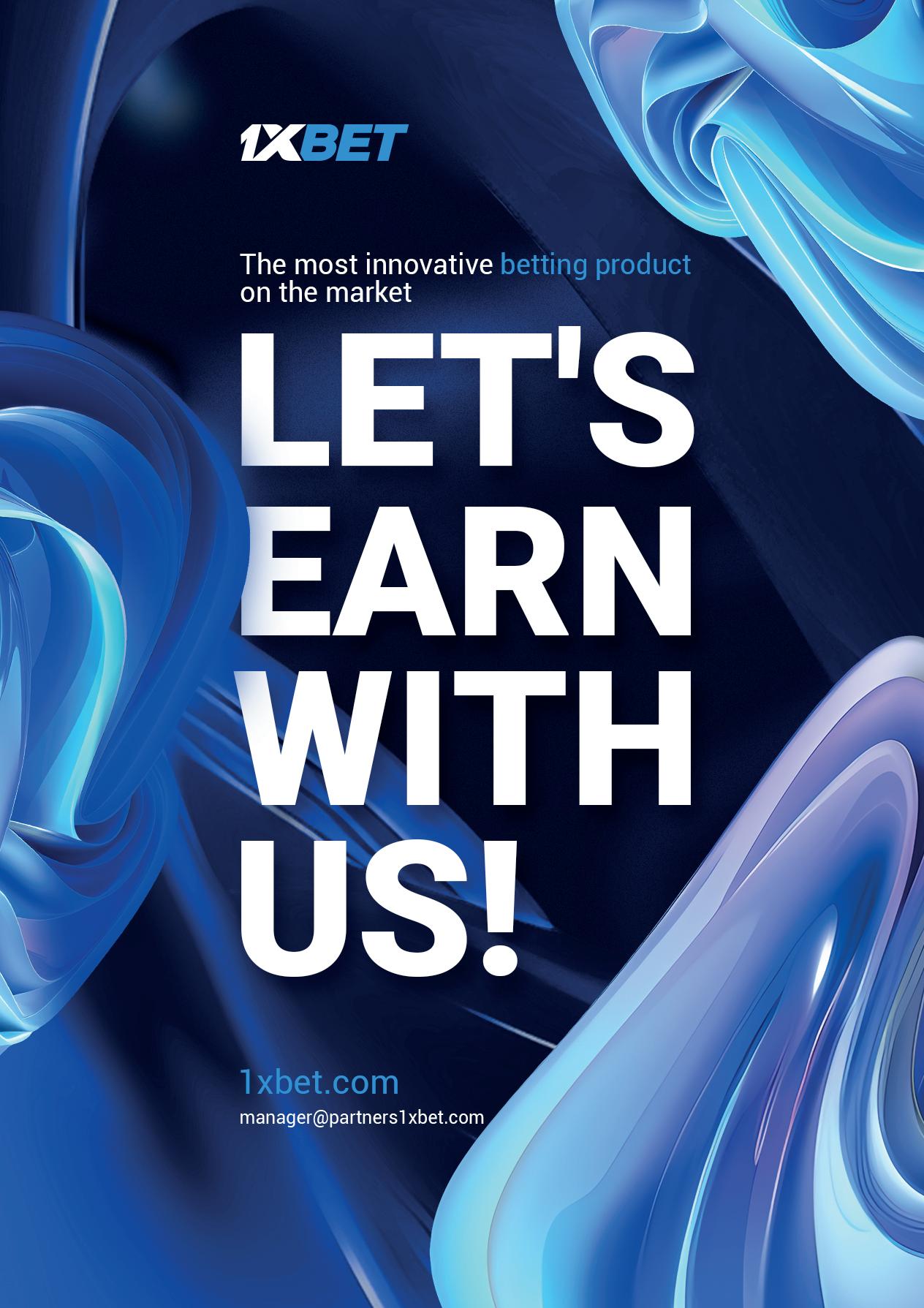

Sky B et, one of the UK’s leading betting firms, has announced its decision to relocate its headquarters to Malta. The move is anticipated to yield substantial tax savings, potentially amounting to £55 million annually. However the implications of this relocation extend beyond mere financial benefits, raising questions about the future of the UK gambling sector and its regulatory landscape.
S ky Bet’s relocation is primarily driven by the desire to reduce its tax liabilities. By establishing its headquarters in Malta, the company can benefit from a significantly lower corporate tax rate, which can be as low as 5% compared to the UK’s 25%. This shift is expected to result in savings of approximately £31 million based on the company’s previous year’s profits.
Additionally, there are indications that Sky Bet may exploit VAT loopholes, potentially saving an extra £24 million on its marketing expenditures.
S ky Bet’s parent company, Flutter Entertainment PLC, has framed the move as a necessity for operational efficiency. During a company-wide meeting, executives highlighted the need to streamline decision-making processes and reduce costs. From November 1, day-to-day commercial and marketing decisions will be made in Malta, although the Leeds office will remain a significant hub for the company.
T he relocation of Sky Bet to Malta comes at a time when the UK government is under pressure to increase tax revenues. The Chancellor is facing calls to impose
higher taxes on the gambling industry in the forthcoming Autumn Budget, which could generate an additional £3.2 billion annually. However, the betting industry has vehemently opposed such measures, arguing that increased taxation could lead to shop closures and job losses.
T he decision to move to Malta raises concerns about the long-term sustainability of the UK gambling sector. As more companies consider relocating to jurisdictions with more favourable tax regimes, the UK government may find itself at a crossroads. The potential loss of tax revenue from major players like Sky Bet could necessitate a re-evaluation of the regulatory framework governing the industry.

South Africa’s online gambling market has seen an incredible surge. The market grew by 550% and reached a turnover of R1.14 trillion in fiscal year 2023-24. The sector has become a major economic force that makes up almost 17% of the country’s GDP. This massive growth in just four years stands as one of the biggest expansions in digital market history.
The market faces legal hurdles despite its success. About 27% of South Africans have placed bets with illegal operators. This number shows the gaps in South Africa’s legal framework
and enforcement for online gambling. Digital platforms now generate 60% of the country’s gross gambling revenue. Players have moved away from traditional venues to digital options.
Mobile access powers this gaming revolution. South Africa reached 118.6 million active smartphones by early 2024, with a penetration rate of 195.4%. The country also has over 45.4 million internet users and a penetration rate of 74.7%. This resilient infrastructure creates ideal conditions for mobile gambling. Experts predict a 10.7% CAGR between 2024 and 2030. The market
should maintain this strong growth path in the coming years.
South Africa’s gambling sector has grown into a financial powerhouse. The latest figures show a surge to R1.5 trillion in turnover for the 2024/25 financial year. This marks a substantial increase from R1.14 trillion recorded in the previous year.
Online betting now dominates the market. The sector generates R761 billion in turnover—more than double the R297 billion from traditional casinos. Betting activities now make up

about 70% of the gross gambling revenue, which hit R75 billion in 2024/25.
The provincial numbers reveal unexpected patterns. Mpumalanga leads with the highest gambling turnover at R359.3 billion. The Western Cape follows with R353.2 billion, while economic powerhouse Gauteng lags behind at R173.7 billion. The Western Cape’s success stands out as it earned over 30% of gambling tax revenues, collecting almost R1.46 billion that year.
This industry’s impact reaches beyond revenue numbers. It supports 33,169 direct jobs and creates more than 144,000 indirect positions. The sector also brought in R5.8 billion in taxes and levies during 2024/25.
Market researchers report exceptional growth in the sector. The top ten online bookmakers saw a 32% yearon-year increase in deposit value. This five-year-old expansion has made gambling an integral part of South Africa’s economy.
Mobile technology powers South Africa’s gambling boom. Smartphones now generate 85% of global online gambling revenue. South Africans use betting platforms through 118.6 million active smartphones in early 2024. This shows an amazing penetration rate of 195.4%.
Mobile platforms have changed how people bet. About 81% of bets now come from smartphones and tablets. Players love the convenience. They can bet from home without travel costs and still keep their privacy.
“I don’t have to walk to the Casino anymore. I just sit at home and place a quick bet,” said a Durban gambler who usually bets R30-R40 per session.
Users love that they can bet anytime. Unlike physical casinos with fixed hours, mobile platforms never close. People can place quick bets or play longer based on their free time. This makes gambling much more accessible.
The ability to bet from anywhere boosts adoption. Travellers only need a device and internet connection to keep playing. But this easy access worries experts. Professor David Spurrett points out: “24/7 access to betting via mobile phones makes gambling harder to control... It is easier to avoid going into a casino than to do without your phone”.







South Africa’s high smartphone use and gambling’s digital transformation create ideal conditions for growth. The industry should grow at 10.7% CAGR between 2024-2030.
Online gambling brands in South Africa use aggressive marketing and high-profile sponsorships to stand out in a competitive market. Betway made headlines with their R900 million title sponsorship of the Premier Soccer League, which led to the competition’s new name - the “Betway Premiership” [25,26]. Cricket South Africa also joined forces with Dafabet, making them the official shirt sponsor for national teams across both men’s and women’s divisions.
Sports stars and celebrities play a vital role in marketing strategies. Rugby icon Eben Etzebeth and his wife Anlia, along with media star Thando Thabethe, have become brand ambassadors for gambling companies. Many musicians and sports broadcasters have followed suit. These partnerships make betting seem normal, especially to young people.
Social media has turned gambling from an adult activity into what experts call a “flashy, fast-moving youth trend”. This raises concerns because about 70% of children can’t spot advertising in product placement videos. Many teenagers also don’t deal very well with separating real entertainment from gambling promotions.
Policymakers have suggested tougher rules in response. These include restrictions on advertising times and a requirement for operators to spend 40% of their marketing money on responsible gambling messages. South Africa’s legal framework for online gambling faces challenges as it tries to keep up with sophisticated digital marketing techniques.
Conclusion
South Africa’s online gambling sector has become a powerhouse in the economy. Digital betting platforms now generate 60% of the country’s gross gambling revenue. This shows a massive change from traditional brick-and-mortar establishments.

The market has grown by an incredible 550%, which is evidence of how fast consumer habits can change when technology meets what people need. Mobile access remains the key driver of this growth. The country’s extraordinary smartphone penetration rate of 195.4% has created perfect conditions for future expansion. On top of that, players can now bet from home whenever they want without worrying about opening hours or travel.
Legal hurdles still exist despite these impressive numbers. About 27% of South Africans place bets with unlicensed operators. This shows the need for better regulatory frameworks that can match this fast-evolving industry. Regulators must adapt to protect consumers while helping legitimate businesses thrive.
The economic rewards are huge. Online gambling has generated over 33,000 direct jobs and contributes nearly 17% to the country’s GDP. Aggressive marketing and high-profile sponsorships have made gambling mainstream, especially when you have younger people involved. This raises valid concerns about responsible gambling promotion.
South Africa’s online gambling surge ranks among the most impressive digital expansions in recent times. The industry continues to grow with projections showing a 10.7% compound annual growth rate from 2024 to 2030. This growth path will likely secure online gambling’s place as a crucial part of South Africa’s economic future.




The Albanese government in Australia is reportedly reconsidering its initial proposal to impose a blanket ban on online gambling advertising. This shift comes amidst ongoing discussions about the regulation of digital platforms and the protection of younger audiences. The government is expected to utilise the recent restrictions on social media for under-16s as a rationale for softening its stance on gambling ads. This is a major change in direction for government whose initial proposal aimed at banning all forms of online gambling advertisements.
Social media platforms have become a primary channel for gambling promotions, often targeting younger users. The government’s recent restrictions on social media for users
under 16 are part of a broader strategy to protect minors from harmful content. However, critics argue that these measures may not be sufficient to address the pervasive nature of gambling advertisements online. Sources indicate that the Albanese administration may abandon the total ban on online gambling advertising. Instead, it is likely to adopt a more nuanced approach that balances the interests of the gambling industry with the need for consumer protection. This could involve stricter regulations on how and where gambling ads can be displayed, particularly on social media platforms.
In tandem with this shift, Communications Minister Anika Wells is expected to intensify efforts to combat illegal offshore gambling websites,
with the government’s crackdown may also extend to social media influencers who promote these unregulated platforms, further tightening the grip on illegal gambling promotions.
The gambling industry in Australia has been closely monitoring the government’s stance on advertising regulations. Many operators have expressed concerns that a total ban could adversely affect their businesses. By softening the proposed ban, the government may alleviate some of these concerns while still addressing public health issues related to gambling.
By Martin Prantner, CEO - Trumo
As Finland prepares to re-regulate its iGaming market by 2027, the country’s operators face a generational shift. Beyond technology and games, payments will define success. Trumo licensed as Trumo Finance Oy and supervised by the Finnish Financial Supervisory Authority (FIN-FSA) — connects banks, businesses and users through instant, compliant, always-on payment rails. The company’s mission is clear: help the new Finnish market move money safely, locally and without friction.
A Moment of Market Transformation
Finland’s decision to move from a state-owned monopoly model to an open, multi-licence market marks one of the most significant regulatory shifts in European gaming. For decades, the domestic operator Veikkaus Oy held exclusive rights. But after years of public debate, the government confirmed
in 2024 that the system would be replaced with a licensing regime designed to curb the outflow of players to offshore sites and to strengthen player protection.
Under the new Gambling Act, draft proposals indicate licence applications will open in early 2026, with the market fully operational by January 2027. Independent analysts estimate that Finland’s online gambling segment is worth more than €2 billion annually and around half of that currently occurs outside regulated channels.
For executives across the iGaming ecosystem, this is more than a new jurisdiction; it is a test of readiness. Success in Finland will hinge on how effectively operators, suppliers and technology partners can balance compliance, innovation and consumer trust.
The Role of Payments in a Regulated Ecosystem
When a market transitions to regulation, the first question is usually about licences. The second and often more important is about payments. How do players deposit, withdraw and interact in real time within new regulatory boundaries?
Payments are not just a mechanical necessity; they are an operational and reputational cornerstone. They shape player confidence, influence retention and form the backbone of responsiblegaming enforcement. In Finland’s future model, where identity verification, anti-money-laundering controls and data transparency will be mandatory, payments will be where regulation meets user experience. That is where Trumo’s role begins.

Trumo’s Purpose: Connecting Banks, Businesses and Users
At its heart, Trumo connects banks, businesses and users through payment rails that are instant, compliant and always available. Whether handling deposits, payouts or recurring flows, Trumo ensures that funds move exactly when and where they should and without friction or uncertainty.
This isn’t an abstract ambition. It’s built on Finnish foundations. Trumo Finance Oy is licensed and supervised by the Finnish Financial Supervisory Authority (FIN-FSA), operating within one of the most advanced regulatory environments in Europe. That status means Trumo’s clients gain not only technology but also the reassurance of oversight, transparency and resilience.
In other words, when Finland opens its iGaming market, Trumo is already there — regulated, proven and ready to scale.
The Nordics are unique. They demand speed and simplicity, but never at the expense of trust. Finland’s re-regulation follows a lineage of neighbouring jurisdictions such as Sweden and Denmark, which have demonstrated that consumer protection and commercial innovation can coexist when infrastructure supports both.
Trumo’s platform was designed with these markets in mind. It offers open-banking integrations, real-time settlement, compliance workflows and data-driven transparency — all wrapped in a user experience that
native to Finnish consumers. It speaks their language, supports their preferred payment methods and integrates with local financial institutions.
That localisation is not cosmetic; it’s cultural. In a country where digital literacy is among the highest in the world, a friction-free payment experience isn’t a differentiator, it’s an expectation.
For many operators, compliance can feel like a cost of doing business and a necessary but heavy burden. Trumo turns it into a competitive advantage. By automating audit trails, ensuring real-time visibility of transactions and embedding regulatory reporting,

of transactions and embedding regulatory reporting, operators can focus on customer acquisition and retention, knowing that their payments infrastructure already aligns with Finnish rules.
In practice, this means faster onboarding for players, fewer payment delays, reduced fraud risk and full traceability for regulators. The result: an ecosystem where transparency is not just a regulatory checkbox, but a growth engine.
In gambling, as in finance, trust compounds over time. When players know that their deposits are secure, withdrawals are fast and the process is seamless, they stay longer and play responsibly. When regulators see transparent systems with robust controls, they gain confidence in the operator ecosystem. And when banks and payment providers trust the technology stack, capital flows more freely and sustainably.
Trumo sits at that intersection of trust. Our role is to make compliance invisible to the player and effortless for the operator and thus ensuring that everyone in the value chain, from regulator to customer, has confidence in how money moves.
By 2027, Finland’s liberalisation could mirror the trajectories seen in Sweden and the Netherlands — where regulated channel share increased rapidly once trusted infrastructure was in place. But unlike those early reforms, Finland has the advantage of hindsight. Regulators and operators can adopt best practices from across Europe, avoiding the pitfalls of fragmented systems or disjointed compliance standards.
Trumo’s Finnish roots make it ideally positioned to support that journey. As the market transitions, we are already collaborating with ecosystem partners to ensure payments integrate cleanly with identity verification, affordability checks and player-protection frameworks. The goal is to create a connected financial ecosystem where the flow of funds is as transparent as the rules governing it.
Technology alone doesn’t build markets it is people that do it. At Trumo, we view partnerships not as transactions, but as collaborations.
Every integration, every API connection, and every compliance check is guided by shared goals: regulatory certainty, player protection and business growth.
This approach reflects our belief that trust isn’t an outcome, it’s a process. By working hand-in-hand with operators, regulators and financial institutions, we can co-create an infrastructure that sustains Finland’s long-term gaming economy.
In that sense, Trumo’s mission aligns closely with the broader purpose of re-regulation: to replace opacity with transparency and fragmentation with unity.
As licence applications open in 2026, we expect to see an influx of both domestic and international operators seeking entry. The most successful will be those who treat compliance not as an afterthought, but as part of their brand identity.
Finland has always balanced pragmatism with innovation, a small nation where digital payments, banking and government services

already operate in real time. The next step is to extend that standard to the regulated gaming sector.
At Trumo, our focus is simple: to make sure that every payment, and every deposit, withdrawal or recurring transaction — happens instantly, transparently and compliantly. Because when regulation meets reliability, the whole market benefits.
Re-regulation is not about restriction. It’s about creating an environment where fair play, responsible gaming and economic value can coexist. Payments are the connective tissue that make that possible.
As Finland steps into its next chapter, the iGaming industry has an opportunity to redefine what a responsible, technology-driven, playerfirst market looks like. At Trumo, we are proud to be part of that evolution and helping ensure that when money moves, it moves with trust.

Alea is the partner that gives operators clarity, control, and performance without limits. Our banking-grade API powers your growth while keeping your operations seamless and secure. Grow with an ally. Grow with a true partner.

21,000 TRANSACTIONS PER SECOND


















By Digitain’s Chief Product Officer - Mary Ann Calleja
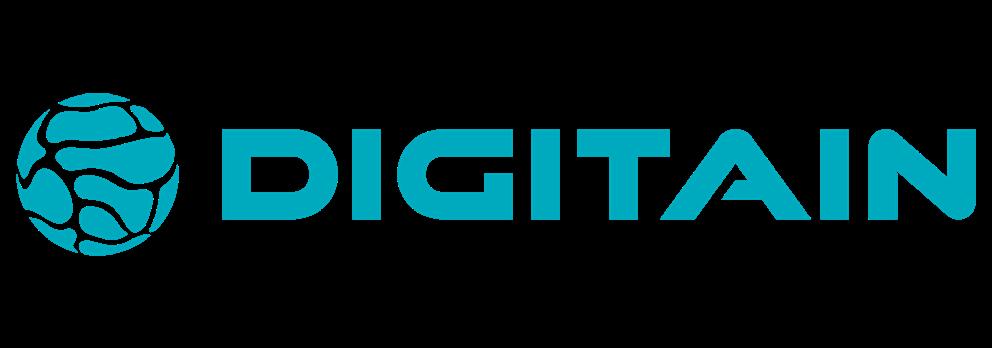
The global sports betting landscape has never been more complex or more full of opportunity. Operators expanding across continents face a reality that is far from uniform. User behavior in Spain looks different from that in Nigeria. Regulatory frameworks in the UK demand something entirely different from those in Brazil. Payment habits, betting preferences, and even the pace of technological adoption vary dramatically from region to region.
In this fragmented yet interconnected environment, designing a sportsbook platform for a single audience is no longer viable. Instead, operators require a system built not just for scale, but for adaptability, a platform that respects cultural nuance, manages regulatory discrepancies, and still delivers consistently high performance. This is the real challenge product teams must address today: How do we build sportsbook platforms that are globally scalable but locally relevant?
B eyond Scale: Flexibility as a Foundational Principle
Scalability used to be the end goal handling high volumes of traffic, offering thousands of events, and maintaining uptime during peak sports seasons. While this remains non-negotiable, it is now only part of the solution. Flexibility has become equally important.
Platform architecture must be modular. This allows operators to activate only the features relevant to their market whether it’s a bet builder for European bettors, mobile-first design for African users, or autobet features for markets with higher demand for automation and convenience. Modular systems ensure operators aren’t constrained by one-size-fits-all product design. Instead, they can create a sportsbook that aligns with local needs, regulatory conditions, and business strategies.
APIs are the backbone of this approach. A well-documented, secure API architecture lets operators integrate
third-party tools, affiliate systems, CRM platforms, or responsible gaming tools based on jurisdictional requirements. Whether the deployment is through an iframe integration or a fully customized front end, flexibility in API usage reduces time to market and futureproofing becomes easier.
Regulation: From Obstacle to Design Driver
Compliance isn’t simply a technical task; it shapes platform architecture. Each jurisdiction brings specific tax rules, betting limitations, and responsible gambling requirements. Platforms developed for multi-market use must be equipped not only to comply, but to adapt as regulations evolve.
For instance, a built-in tax engine capable of adjusting to country-specific models removes a significant operational burden from operators. Automating regulatory reporting, audit logging, and bet transparency prevents human error and shortens the time needed to

enter or expand in a new market.
Naturally, localization goes beyond language or currency. Odds formats, responsible gambling tools, bet limits, licensing constraints, and marketing rules all fall into this category. A platform might offer fractional, decimal, or American odds depending on the player’s location. Regional payment preferences such as mobile wallets in Africa or local bank transfers in Eastern Europe must also be accommodated. When product teams treat regulation as a design parameter rather than a limitation, adaptability becomes embedded into the system.
The ideal sportsbook feels familiar yet personal. Users need consistency in navigation and performance, but they also expect experiences tailored to their interests and betting habits.
Personalization is not simply about recommending popular events; it’s about utilizing user behavior, betting history, preferred teams, and betting styles. Platforms today employ real-time analytics to suggest bets, highlight odds shifts, or alert users when a preferred market becomes available. Automation allows for features like autobet where users predefine odds ranges and allow the system to execute bets automatically once criteria are met. These tools
respond to users’ desire for more control and reduce the friction of constant manual checking.
Still, personalization must be delivered responsibly. Over-targeting or overincentivizing can harm user trust. Clear settings that let users control notifications, recommendations, and betting limits are not just ethical decisions; they are essential for maintaining loyalty and complying with responsible gaming standards.
User engagement is becoming more immersive, extending beyond simple stakes and returns. Gamification elements like bet tournaments, progressive jackpots, or social features such as live chat and community betting are shifting sportsbooks into social entertainment platforms.
The challenge, however, is ensuring these tools serve a purpose beyond novelty. A bet tournament should not simply be a leaderboard; it should motivate participation and reward strategy. A progressive jackpot must be transparent, with clear rules on contribution and payout. Even social features must be monitored to maintain responsible and respectful interactions.



Bonus tools, cashback, accumulator bonuses, partial or auto cashout can enhance retention, but they must be used selectively and tailored per segment. Overwhelming users with incentives can dilute value and harm revenue integrity. Thoughtful design and targeted offering ensure these features support long-term loyalty rather than short-term engagement spikes.
The future of sportsbook platforms lies in interoperability. They are no longer standalone systems but parts of broader ecosystems involving casinos, live dealer games, virtual
sports, affiliate systems, and media partnerships. Players expect a seamless journey, moving between sports betting, mini-games, or casino experiences without repetitive logins or disjointed interfaces.
To support this, platforms must evolve from rigid infrastructures to adaptable ecosystems. Operators will continue to diversify, audiences will continue to fragment, and regulations will continue to evolve. Adaptability is no longer a feature; it is the architecture.
Building sportsbook platforms for multi-market operators is a continuous exercise in balance.
Between personalization and privacy. Innovation and regulation. Local relevance and global reliability. Every new market entered presents a fresh set of variables but also new opportunities to refine, adapt, and improve.
The future of sportsbook technology won’t be defined by who offers the most features, but by who delivers the most adaptable system, one that fits seamlessly into different cultures, regulations, and user expectations, without losing stability or identity.

Illinois has suffered a significant downturn in sports betting decreasing by 15% for September. This decline has raised concerns with the gambling industry supporters, particularly following the introduction of a new tax on wagers. The implications of this tax are profound, suggesting a potential shift in consumer behaviour as bettors may be gravitating towards illegal markets due to the increased financial burden of legal betting.
In June, Governor J.B. Pritzker signed a budget that included over $480 million in tax increases, one of which was a new tax specifically targeting sports betting. This tax imposes a 25-cent “privilege” tax on each mobile or online wager up to 20 million bets, escalating to 50 cents for each bet thereafter.
The immediate aftermath of the tax implementation was stark. According to the Sports Betting Alliance of Illinois, there were five million fewer bets placed in September compared to the same month in the previous year. This drop is particularly alarming given that September typically marks the start of the professional football
season, a time when betting activity usually surges.
Maura Possley, a spokesperson for the Sports Betting Alliance of Illinois, expressed her concerns regarding the tax’s impact on the legal betting market. She noted that the decline in betting activity serves as a “red flag,” indicating that Illinois sports fans may be opting for the cheaper, illegal betting options available outside the state’s regulatory framework.
Interestingly, while Illinois is witnessing a downturn, other states are reporting an increase in sports betting revenues. This divergence highlights a troubling trend for Illinois, where the high per-wager tax may be driving bettors away from the legal market. Possley pointed out that Illinois has one of the highest per-wager taxes in the nation, which could be a contributing factor to the state’s declining betting figures.
The ramifications of this decline extend beyond just the betting industry. The state relies on tax revenues from legal betting to fund various public services. A decrease in betting activity could lead to a shortfall
in expected tax revenues, which may impact funding for essential services. This situation poses a dilemma for policymakers who must balance the need for revenue with the potential consequences of over-regulation.
As legal betting becomes more expensive, there is a growing concern that bettors will turn to illegal markets, which operate without oversight or consumer protections. Possley highlighted the agreement among attorneys general across the country regarding the dangers posed by illegal online gaming.
In a move that could exacerbate the situation, Chicago Mayor Brandon Johnson has proposed an additional city tax on betting as part of his 2026 budget plan. Stakeholders like Possley have warned that such measures could be “unprecedented” and would likely push more bettors towards illegal options. The potential for further taxation raises questions about the sustainability of the legal betting market in Illinois.








By Julia Alekseeva, Chief Product Officer at BGaming

In the ever-evolving landscape of iGaming, where innovation moves fast and player expectations evolve even faster, content providers are constantly seeking ways to stand out — not only through great games but through clarity, structure, and purpose. BGaming, a studio known for its creativity, player focus, and data-driven approach, has taken a bold step in this direction with a complete refresh of its game portfolio.
Earlier this year, the company unveiled a new classification system that organizes its diverse catalogue of over 220 titles into three clear categories — Casual, Classic, and Entertainment
The change is more than a cosmetic update; it’s a strategic redefinition of how BGaming communicates value to operators and players alike.
According to Julia Alekseeva, Chief Product Officer at BGaming , “We’ve always loved diversity in games — different mechanics, moods, features,
even personalities. But as our portfolio grew, we realized we weren’t just creating individual titles — we were building three distinct gaming worlds, each with its own characteristics, audiences, and business goals.”
The result is a system designed to bring simplicity to scale. Each world represents a different type of player experience, reflecting the company’s evolution from a game developer to a publisher — one that connects creativity, technology, and player insight under a single vision: to go beyond game provider.
The Vision Behind the Classification BGaming’s portfolio has expanded rapidly in recent years, with around six new releases every month. The studio’s games range from traditional slot machines to hybrid crash-style titles and branded experiences with celebrities and influencers. While this diversity helped the brand attract global audiences, it also created a challenge
— how to help operators and players navigate it all easily.
“Our partners loved our creativity,” says Alekseeva, “but at some point, even they started asking for a clearer way to understand which games perform best for which audiences. We saw that behind all this variety, there were three worlds emerging naturally. Once we gave them definition, everything fell into place.”
This realization led to the introduction of three main categories , each tailored to distinct market needs and player behaviours:
● Casual – fast, light, and instantly engaging experiences;
● Classic – timeless, steady performers built on traditional mechanics;
● Entertainment – feature-rich, highvolatility titles designed for modern, dynamic play.
This structure isn’t just a marketing tool — it’s a roadmap for growth. It allows partners to position games more effectively, helps the company plan its releases strategically, and offers players clearer expectations of what they’re about to experience.
Casual games have become one of the hottest trends in iGaming, largely due to their accessibility and mass appeal. They’re designed for short sessions, quick wins, and immediate satisfaction — making them ideal for acquisition, conversion, and engagement.
Titles like Plinko, Aviamasters™, and Balloon Mania define this category. They’re simple to play but rich in emotional payoff — delivering excitement in seconds, not minutes. Their viral potential on social media platforms such as TikTok and Twitch has also made them a favorite among affiliates and streamers.
“Casuals are our way of saying that fun doesn’t have to be complicated,” Alekseeva explains. “They bring instant energy to casino lobbies and attract a broad audience — from first-time players to experienced users looking for quick thrills. They’re also a fantastic tool for operators to grow traffic and introduce new demographics to casino content.”
Beyond their simplicity, these games are technically advanced, optimized for mobile-first experiences, and compatible with both fiat and crypto operations — reflecting BGaming’s commitment to accessibility and innovation.
While innovation drives attention,
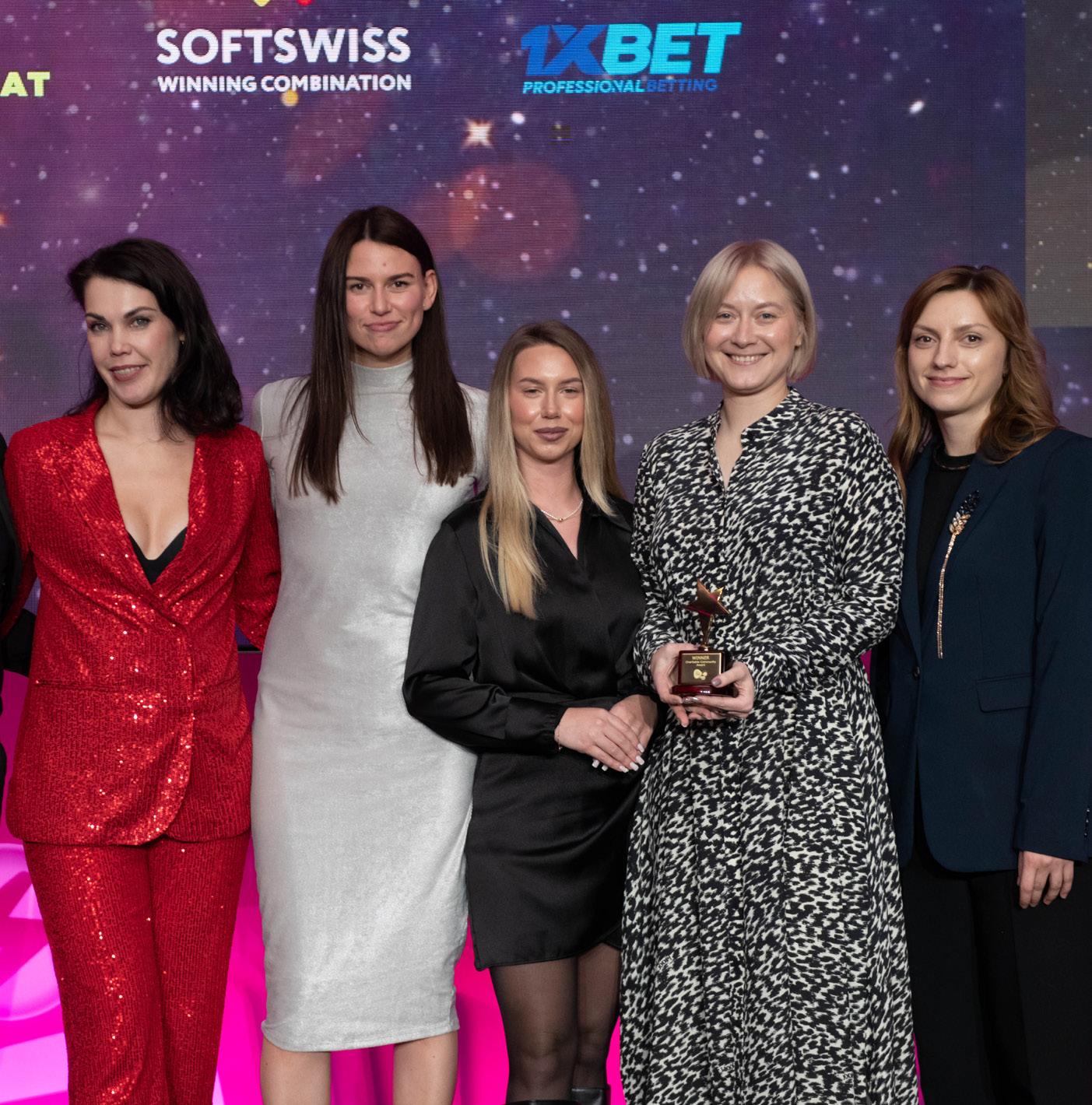
consistency builds trust — and that’s exactly what BGaming’s Classic category delivers. These titles honor the timeless mechanics and designs that have defined slot gaming for decades, while still incorporating the brand’s signature polish and math precision.
Games like Burning Chilli X, Hot Chilli Bells, Fruit Million, and Lady Wolf Moon exemplify this category. With mediumto-low volatility, familiar symbols, and rhythmic gameplay, they cater to traditional slot fans who appreciate reliability, comfort, and balance.
“Our Classic games form the heartbeat of the casino experience,” Alekseeva says. “They’re steady performers with high retention and strong replay value. They appeal to players who enjoy stability and to operators who rely on consistent metrics.”
But don’t mistake “classic” for “outdated.” BGaming continuously updates this segment with modern twists — new features, animations, and bonus mechanics that refresh the experience without losing its essence. The result is a perfect balance between tradition and innovation — a portfolio segment that never goes out of style.
The Entertainment category is where BGaming’s boldest ideas take flight. High-volatility mechanics, striking visuals, and distinctive storytelling combine to create games that don’t just entertain — they perform.


Titles like Snoop Dogg Dollars, Bonanza Billion, Aztec Clusters, and Elvis Frog TRUEWAYS™ embody this spirit. Built with streamers and highengagement audiences in mind, they’re packed with bonus buys, advanced math models, and features designed to spark big emotions and viral moments.
“These games are built for excitement,” says Alekseeva. “They’re show-stoppers — perfect for streamers, promotions, and operators who want to generate spikes in traffic. We treat each Entertainment game as a mini-event — something that stays memorable well beyond the first spin.”
This category also reflects BGaming’s growing collaborations with influencers, media brands, and creative
partners. Recent hits like Snoop Dogg Dollars and upcoming titles such as Star Trek™: The Next Generation highlight how the company combines entertainment IPs and gaming innovation to expand its audience and strengthen brand engagement.
For operators, the new classification is more than an internal reshuffle — it’s a practical tool that enhances marketing and product strategy.
“With over 220 titles in our catalogue, we wanted to make it easier for partners to see the full picture and pick what best fits their goals,” says Alekseeva. “This system lets operators instantly understand the purpose and potential of each game — whether
they need a high-traffic acquisition title, a reliable retention tool, or a highimpact promotional hit.”
This transparency also strengthens BGaming’s publisher identity. Rather than acting as a traditional content supplier, the company positions itself as a creative partner that helps casinos, affiliates, and brands achieve specific objectives through a balanced and diverse portfolio.
In Alekseeva’s words, “It’s about clarity and collaboration. When our partners know exactly what they’re getting — and why — it helps them build smarter campaigns and create better player journeys.”

Pilot is redefining what’s possible in the gaming industry. We design, build, and deliver top-performing experiences across charitable,

The Mexican government has suspended the operations of 13 casinos across the country in relation it believes involved in money laundering. This is part of a broader crackdown on money laundering activities that have been increasingly linked to the gambling industry.
One of the largest companies involved is Grupo Salinas, which owns two of the casinos and which also runs TV stations, retail and banking with the largest shareholder Ricardo Salinas Pliego, who has been publicly critical with the Mexican administration of President Claudia Sheinbaum, the company denied any wrongdoing and accused the government of harassment.
The Mexican government has been under pressure to address the growing concerns surrounding money laundering, particularly in industries that handle large sums of cash, such as casinos. The Financial Intelligence Unit (FIU) of Mexico has been actively investigating various establishments
suspected of facilitating illicit financial activities. The recent suspension of these casinos is a direct result of these investigations.
The FIU plays a crucial role in monitoring financial transactions and identifying suspicious activities. By analysing data from various sources, including banks and casinos, the unit can pinpoint establishments that may be involved in money laundering. The recent suspensions were based on findings that indicated these casinos had failed to comply with anti-money laundering regulations.
This is not the first time that casinos in Mexico have faced scrutiny. Over the past few years, several establishments have been implicated in money laundering scandals, prompting the government to tighten regulations. The legal framework governing casinos includes stringent requirements for reporting large transactions and conducting due diligence on patrons. However, enforcement has often been inconsistent, leading to calls for more robust oversight.
The suspension of these casinos has significant implications for the gaming industry in Mexico. With the government taking a hard stance on compliance, operators will need to reassess their internal controls and reporting mechanisms to avoid similar fates.
The immediate financial impact on the suspended casinos is substantial. Many of these establishments rely heavily on revenue from gaming activities, and a suspension can lead to significant losses.
As the government continues to crack down on financial crimes, the likelihood of increased regulation in the casino sector is high. Operators may face more stringent requirements for reporting and compliance, which could lead to higher operational costs. This shift may also result in a consolidation of the industry, as smaller operators struggle to meet the new standards.
By Miguel Lopes CPO - TrafficGuard

Affiliate campaigns are one of the most common acquisition channels for sportsbooks. For operators without a local licence, they’re often the primary way to drive digital growth because the model is simple, pay commission on first-time depositors, keep the upfront risk low, and scale quickly. But while the channel is built for efficiency, many operators don’t realise they’re now prime targets for increasingly sophisticated affiliate fraud tactics.
Successful campaigns rely on a strong, trusted relationship between operators and their affiliate partners. Yet that same trust is exactly what some partners exploit, using increasingly subtle tactics to hijack attribution and claim credit they didn’t earn. This has resulted in operators unknowingly paying out $3.4 billion a year to fraudulent sources according to Impact.
Affiliate programmes are a core growth channel for sportsbooks, rewarding partners only for new bettors. But
when attribution is hijacked or misassigned, operators end up crediting the wrong partner for growth. Even players who would have arrived through another partner, or organically, appear to come from the wrong source, leaving sportsbooks making decisions based on misleading data. The result is wasted budget, distorted performance insights, and reputational risk. If left unchecked, the affiliate programme can never deliver its true potential.
New user acquisition is a key metric for operators, and affiliate marketing programmes have provided them with an effective avenue for boosting their reach. But with heavy reliance comes heavy risk as the threat of affiliate fraud continues to evolve.
Affiliate fraud manipulates marketers into paying commissions to fraudsters for product promotions they didn’t actually earn or have falsified. Initially,
affiliate fraud started as click farms and fake purchases, but it has evolved into more advanced tactics such as cookie stuffing or URL hijacking.
Here are some of the common tactics deployed by affiliate fraudsters:
• Cookie Stuffing: Fraudsters can drop third-party cookies into a users’ web browser without them realising. This cookie is full of false information and deceives the website into thinking the fraudster sent them the traffic. The operator will then misattribute the engagement, paying the fraudulent source for the hard work done by a legitimate partner.
• URL Hijacking: This underhanded tactic involves the fraudster setting up a domain name nearly identical

to an existing brand. When users are searching for the original brand and incorrectly spell its name, they’ll land on the fraudster’s site by accident. This site will quickly redirect the user to the true brand site with an affiliate link before they even realise they’ve made the mistake. This allows the fraudster to claim attribution for any user they redirect to the site.
• Last-Click Theft: Fraud tactics have continued to advance, and bad actors are now capable of mimicking legitimate browser extensions. When a user with the extension moves to make a purchase, the bad actor can inject a click as it is finalised to be fraudulently rewarded for the referral. Fraudsters can also hide referral clicks in discount codes. When a user clicks on and copies a fraudulent discount code, a click will be generated in the background when it is used to steal the attribution.
Beyond attribution hijacking, affiliate programmes face a range of other threats. Incentivised traffic may generate conversions, but these users rarely stick around, leaving operators paying for low-value customers. Misleading creative ads or landing pages that misrepresent the offer can also drive fake or non-compliant traffic, eroding brand trust and raising compliance issues.
Non-compliant media buying, such as partners running paid traffic from restricted geographies or bidding on your brand terms, can also damage your programme’s reputation and put your operation at risk. Taken together, these risks can significantly undermine the effectiveness and integrity of your affiliate strategy.
Operators can suffer long-lasting damage to budgets and reputation without even realising it. To protect their programme and ensure that growth is credited to the partners who actually delivered it, it’s crucial to stop attribution hijacking before fraudsters reap rewards meant for legitimate partners.
It’s integral that operators work to expose fraudulent affiliate practices. To protect budgets and maintain brand integrity, operators should:
• Regularly Monitor Traffic: By performing regular audits on your traffic and metrics it’s possible to identify any discrepancies in the data to root out fraud before it takes place.
• Learn the Warning Signs of Fraud: Operators should be on the
lookout for the potential signs of affiliate fraud. Large spikes in traffic from suspicious sources or locations a one potential indicator. If a particular affiliate is being paid excessively high commissions without substantial evidence of their contributions that is another sign they are attempting to carry out fraud.
• Vet Potential Affiliate Partners: It’s key that operators avoid paying and optimising towards fraudulent sources. They should extensively vet potential affiliate partners and their platforms to determine if they’re a legitimate candidate. Operators should also verify their email address and website URL match.
Affiliate marketing has transformed the way sportsbooks attract new users without the need for big budgets or lengthy campaign strategies. However, operators aren’t aware that they may be optimising bad data and unknowingly rewarding fraudsters. With sportsbooks under pressure to justify every marketing dollar, it is no longer a viable option to sit back and do nothing.
To keep ahead of the rapid growth and sophistication of fraud tactics, it’s crucial that operators construct an effective strategy. By verifying their partners and auditing their traffic, sportsbooks can ensure their ad spend is driving genuine growth and acquisition.


Top-performing and game-changing Money Gong™ Multi-Level Progressives that’s rocking performance charts in EMEA! Incorporating innovative mechanics, exciting bonus boosters and massive jackpots players seek.
Ho Dai Dung, the former deputy chairman of Phu Tho Province in northern Vietnam, has been sentenced to three years and six months in prison for his involvement in illegal gambling activities by losing approximately $7 million at a casino in Hanoi.
On Wednesday 12th November, the Hanoi People’s Court conducted a trial that resulted in the sentencing of 141 individuals, with 136 of them facing charges related to gambling. The total amount gambled by these individuals reached an astonishing $107 million. Among those sentenced, five were implicated in the organisation of the gambling activities, which primarily took place at the King Club casino located within the Pullman Hotel.
Ho Dai Dung was not the only notable figure in this case. Bui Van Huynh emerged as the largest gambler, having wagered $16.3 million. He received a sentence of four years and six months, alongside a fine of VND 50 million (approximately $1,890). Another gambler, Vu Phong, who lost $10.7 million, received the same sentence. Additionally, singer Nguyen The Vu was sentenced to three years in prison for gambling $4.37 million, marking him as one of the top offenders in terms of financial loss.
The court’s decisions varied significantly among the defendants. While 60 individuals received suspended sentences, 40 others were merely fined. The court explained that those who gambled exceptionally large sums or had prior criminal records were more likely to receive jail time, reflecting a stringent approach

to gambling-related offences.
The King Club, where these illegal activities transpired, was established by Viet Hai Dang Company and leased to South Korean national Kim In Sung in 2019. Despite being licensed to cater exclusively to foreign gamblers, the casino allowed Vietnamese nationals to participate in gambling activities. This was achieved by providing them with foreign names and membership cards, enabling them to engage in games such as slots, roulette, and baccarat.
To attract more gamblers, the casino implemented various promotions, including a weekly reward of $10,000 for the top 20 winners. This not only increased participation but also contributed to the substantial
sums gambled within the establishment.
The court identified Kim In Sung as the ringleader of this operation. Authorities believe he profited approximately $9.2 million from these illegal activities. However, Kim fled Vietnam before law enforcement could apprehend him. Two executives from Viet Hai Dang Company, Phan Truong Giang and Nguyen Dinh Lam, were also implicated in facilitating the illegal gambling operations. Giang received a sentence of 30 months, while Lam was given a three-year suspended sentence.


The recent elections in Texas have revealed significant challenges for supporters of gambling legalisation in the state. Despite substantial financial backing from influential figures and organisations, the results indicate a persistent resistance to the expansion of gambling, particularly in the realm of sports betting and casinos.
In the latest special election for Senate District 9, Republican candidate John Huffman, despite being the most financially supported contender, finished third. His campaign, which received approximately $3.5 million in contributions, including significant support from casino owner Miriam Adelson, failed to resonate with voters. Huffman garnered only 16% of the vote, trailing behind Democrat Taylor Rehmet and fellow Republican Leigh Wambganss. This outcome underscores a growing disconnect between financial investment in political campaigns and voter sentiment regarding gambling.
The defeat of Huffman shows the broader challenges faced by gambling advocates in Texas. Previous attempts to pass sports gambling legislation have faltered, with a bill that narrowly passed the Texas House in 2023 failing to progress further. The political climate remains unfavourable, particularly in the Texas Senate, where Lieutenant Governor Dan Patrick, a vocal opponent of gambling, holds significant sway. This environment raises questions about the feasibility of future legislative efforts aimed at legalising gambling.
Despite the substantial financial resources at their disposal, proponents of gambling have struggled to translate this support into electoral success. The Texas Sands PAC, established by Las Vegas Sands, reported over $8 million in cash reserves, bolstered by a $9.1 million donation from Adelson. However, the effectiveness of such financial backing in swaying public opinion remains questionable, as evidenced by Huffman’s campaign, which focused more on local issues like property taxes and public safety
rather than gambling.
The political landscape in Texas is marked by a division among Republican lawmakers regarding gambling. While some, like Huffman, advocate for legalisation, others align with Patrick’s conservative stance against it. Wambganss, who opposed casino legalisation, received endorsements from key figures in the Republican Party, including Patrick and former President Donald Trump.
Polling data indicates that there is considerable public support for legalising gambling in Texas, particularly among younger voters. However, Republican voters exhibit mixed feelings, reflecting the broader ideological divide within the party. Business interests, including the Texas Association of Business, have expressed support for legalisation, arguing that it could generate significant revenue for the state. Yet, the challenge remains in convincing lawmakers to act in accordance with public sentiment.
Despite the setbacks, supporters for gambling legalisation in Texas remain undeterred. The Texas Sands PAC and other organisations continue to invest in political campaigns, aiming to support candidates who align with their interests. The upcoming 2026 elections present an opportunity for these groups to regroup and strategise, potentially focusing on building broader coalitions that include business interests and public support.
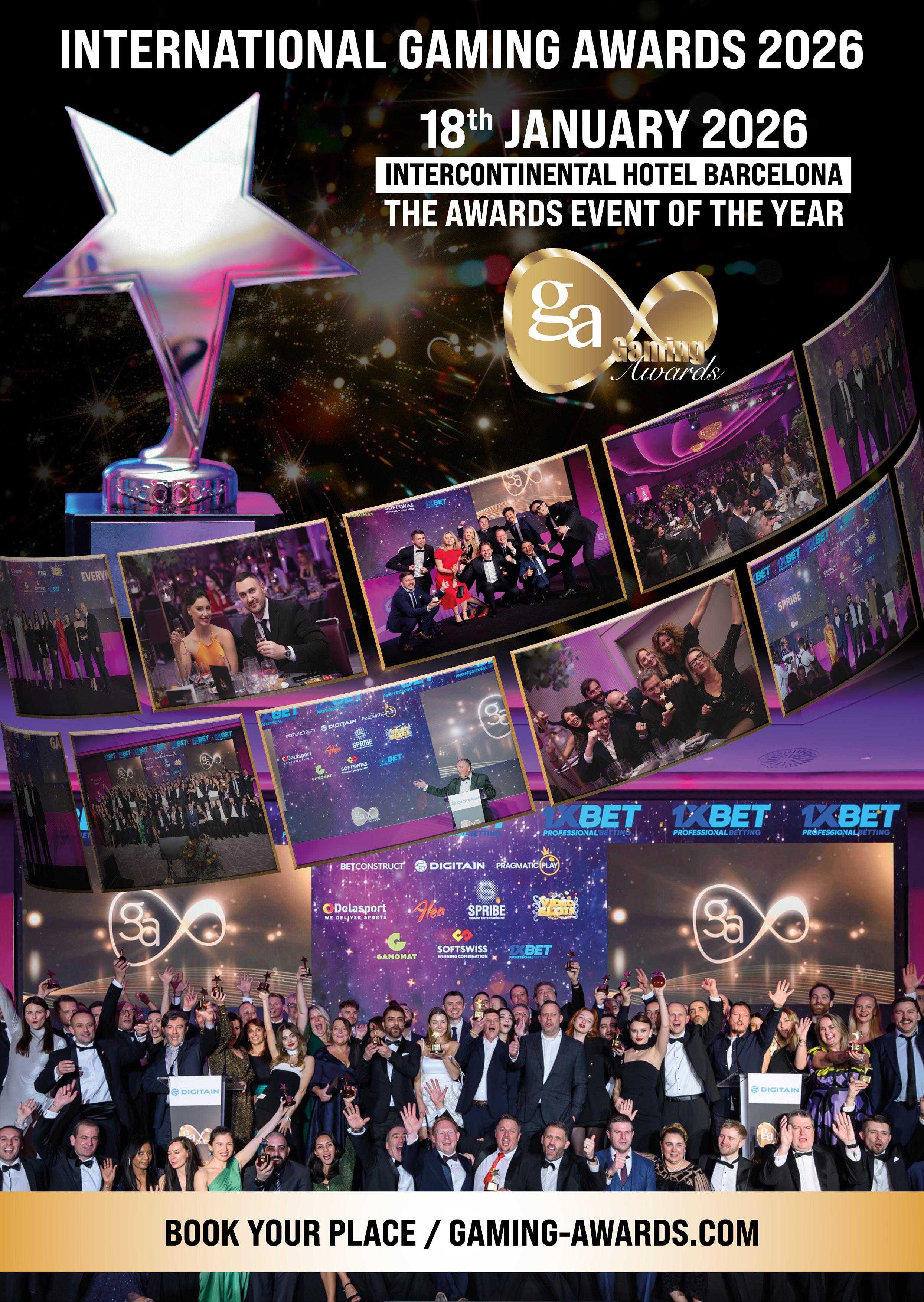

DraftKings and FanDuel have announced their departure from the American Gaming Association (AGA) with immediate effect and the surrender of their Nevada gaming licenses. Their decision comes as both companies prepare to launch prediction market platforms regulated by the Commodity Futures Trading Commission (CFTC), which stand in stark contrast to Nevada’s existing regulations on sports event contracts.
The AGA has long been a pivotal player in advocating for legal and regulated gaming in the United States it says. However, both DraftKings and FanDuel have indicated that their future strategies no longer align with the AGA’s priorities. A spokesperson for FanDuel, Alex Pitcocchelli, stated, “Our views of the current opportunity for prediction markets outside of regulated states are unfortunately in direct opposition to Nevada’s priorities for its licensed operators.” This sentiment was echoed by DraftKings, which noted that its business strategy, including the development of prediction markets, no longer fully
aligns with the AGA’s direction.
The Nevada Gaming Control Board has made it clear that the upcoming prediction market operations of both companies are incompatible with state policies governing licensed operators. As a result, the Board accepted Flutter Entertainment’s surrender of its Order of Registration, which includes all approvals related to FanDuel Sportsbook. DraftKings also withdrew all pending applications tied to its interests in sports wagering in Nevada, marking a significant regulatory shift for both companies.
Prediction markets are platforms where individuals can bet on the outcomes of future events, such as sports matches or political elections. Unlike traditional sports betting, which focuses on the outcome of specific games, prediction markets allow users to speculate on a variety of outcomes, often providing a more dynamic and engaging betting experience.
Both DraftKings and FanDuel are now focusing on launching their predic -
tion market platforms under federal oversight. FanDuel Predicts is set to debut in December through a collaboration with CME Group, while DraftKings is developing its own platform, DraftKings Predictions, after acquiring Railbird, a CFTC-approved platform. This move signifies a shift towards a more regulated environment for prediction markets, which could attract a broader audience.
The exit of DraftKings and FanDuel from the AGA and their focus on prediction markets could have farreaching implications for traditional sports betting. As these companies pivot towards prediction markets, they may draw customers away from conventional sportsbooks, potentially reshaping the landscape of sports wagering in the United States.
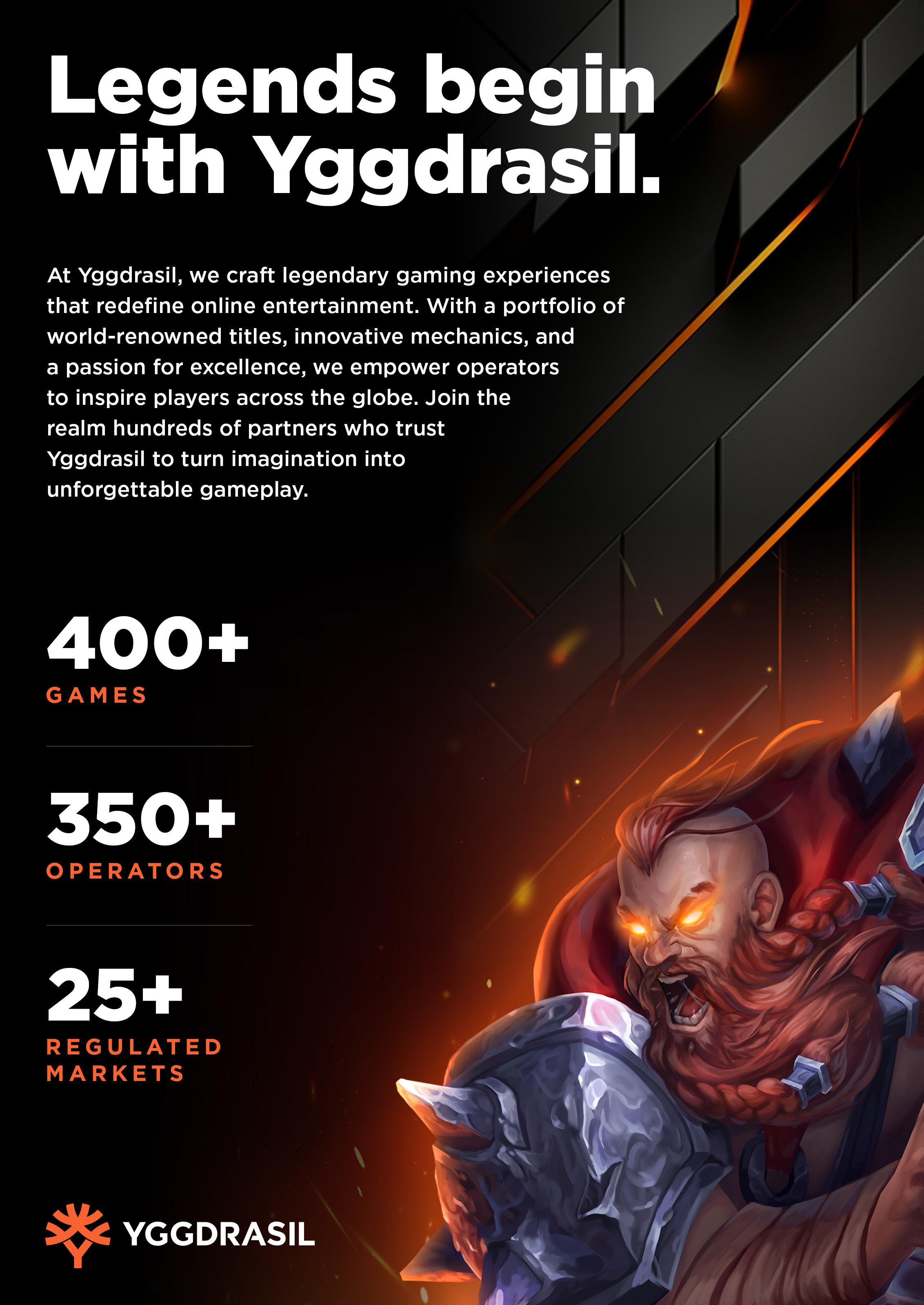

The online gambling landscape in Europe is undergoing a significant transformation, with mobile platforms leading the charge. Recent analyses indicate that mobile devices are responsible for approximately 58% of online gambling revenue, a figure projected to rise to nearly 67% by 2029.
The surge in mobile gambling is particularly evident among younger demographics. Data from the UK Gambling Commission reveals that 76% of online gamblers aged 18-24 prefer using smartphones for their gaming activities. In stark contrast, only 14% of individuals over 65 engage in online gambling via mobile devices.
The analysis highlights the Nordic countries as frontrunners in the digital gambling space. In Sweden, Finland, and Denmark, approximately 68% of all gambling activities occur online,
with mobile accounting for a significant portion of this. For instance, in Denmark, mobile betting constitutes 70% of all wagers, while online casino games generate 63% of gross gaming revenue (GGR).
Southern European markets are also witnessing rapid growth. Spain, for example, recorded a remarkable 15.14% year-on-year increase in online GGR in the first quarter of 2024.
Conversely, Germany remains lagging in the mobile gambling revolution. With only about 22.6% of its gambling market transitioning online, strict regulations regarding spin speeds, stake limits, and deposit caps are hindering digital adoption. As the rest of Europe embraces mobile gambling, Germany’s cautious approach may leave it at a competitive disadvantage.
A notable trend in the evolving gambling landscape is the height -
ened focus on responsible gambling. Recent data from the European Gaming and Betting Association (EGBA) indicates that 60% of players utilised safer gambling tools in 2023, with this figure rising to 65% in 2024.
The expansion of 5G technology is revolutionising mobile gambling. With 85% of the European population expected to have access to 5G by 2030.
The future of online gambling in Europe is undeniably mobile-centric. Operators that prioritise mobile-first product development will be better positioned for long-term success. This involves not only optimising existing platforms but also innovating new features that enhance the mobile gaming experience.
In 2026, iGaming faces its most strategic turning point yet. The era of rapid expansion and light regulation is ending, replaced by one where compliance, transparency, and sustainable growth take centre stage. The key question for business is no longer how to grow faster, but how to grow smarter.
SOFTSWISS released its 2026 iGaming Trends Report – a format that has become a benchmark for industry foresight. The company produced one of the most data-rich studies to date, connecting a global market overview with expert analysis.
The research combines independent studies from Kantar, two waves of quantitative surveys involving over 350 iGaming professionals, an AI-driven review of 120,000 media headlines, and 30 in-depth interviews with industry specialists. The result is a grounded, evidence-based view of where the industry is heading and how businesses can prepare for the future.
Regulation and Trust: Compliance as Strategy
“ The crucial question for 2026 is not whether regulation expands, but what kind of regulation it becomes.”
That statement from the report captures the challenge every executive now faces. iGaming is entering a new phase, defined by government accountability and responsible taxation. Unregulated grey areas are gradually disappearing.
I n Brazil, for example, the government maintained a 12% GGR tax rate, rejecting the proposed increase to 18%. This decision signalled a readiness to balance between fiscal ambition and
market stability. In Europe, advertising restrictions and enhanced AML frameworks continue to shape a more mature ecosystem. Meanwhile, Africa is moving towards unified licensing models, aiming to attract responsible international investment.
These developments underscore a shift in mindset. Compliance is no longer a defensive act – it has become a strategic position. Companies that can demonstrate transparency and reliability gain access to better partnerships, lower risk premiums, and stronger brand equity.
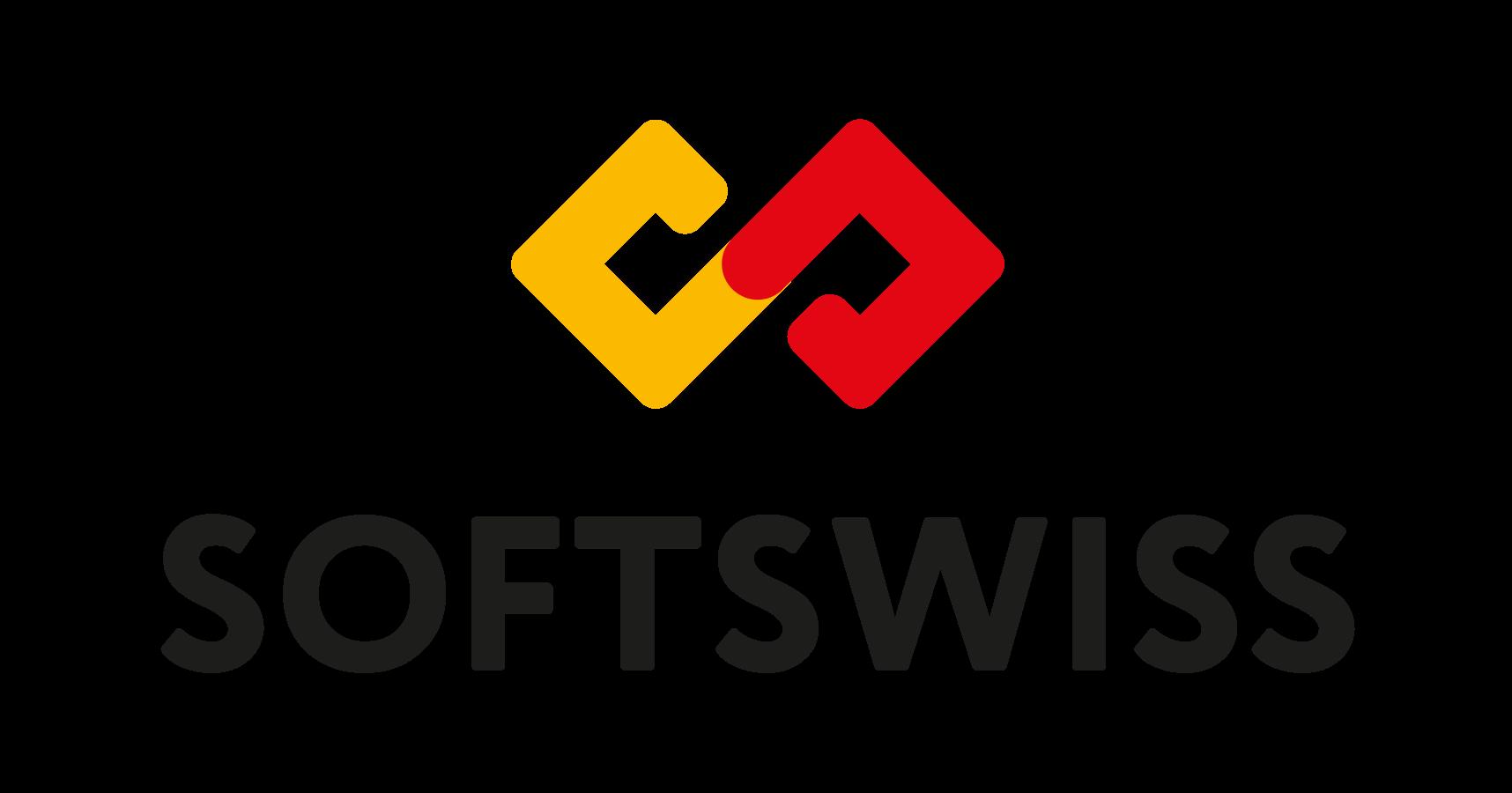
The report also highlights how operators are rethinking internal governance. Some are embedding regulatory liaisons within senior teams to anticipate changes before they arrive, rather than reacting to them. Others are aligning compliance reporting with ESG commitments, reframing regulation as part of corporate reputation.
Ultimately, regulation has evolved from a hurdle to a differentiator. The companies that internalise this shift now shape the new standard of trust in iGaming.
“The industry has moved from experimenting with AI to industrialising it.”
That’s how the report describes the current stage of technological development. The conversation around AI is no longer about pilots or prototypes – it’s about how automation, predictive analytics, and fraud detection tools are now built into the daily workflow.
More than half of the respondents (56%) already rank AI among their top strategic priorities, up from 51% the previous year. What has changed is the focus: executives are now asking what measurable impact these tools deliver on efficiency, compliance, and customer experience.
The same logic applies to infrastructure resilience, which has emerged as a central performance indicator. Operators are being judged not just by their innovation speed, but also by their reliability – specifically, how often their platforms fail, how quickly they recover, and how securely they manage data across jurisdictions.

As iGaming operations scale globally, resilience becomes a competitive weapon. The report highlights the increasing adoption of multi-zone cloud environments, ISO-certified security frameworks, and automated traffic balancing, all of which are designed to ensure stability during peak periods.
Technology today needs to stay adaptable. Platforms must handle regulatory updates, integrate new content partners, and stay secure against cyber threats without disrupting the player experience. The real challenge isn’t chasing innovation for its own sake, but engineering flexibility deep into the organisation.
“AI makes player protection more precise.”
Responsible gambling and player protection are becoming the foundation of business sustainability. Governments across regulated markets are expanding oversight through spending caps, biometric ID checks, and mandatory exclusion
programs. But the most effective solutions now come from technology rather than regulation.
AI-based monitoring tools help detect early signs of risky behaviour before harm occurs. These systems track play patterns like rapid bet sequences, chasing losses, or excessive sessions, so operators can intervene proactively.
However, the data also reveals a communications problem. The report cites a study showing that 45% of players who viewed safergambling videos interpreted them as reassurance that iGaming is harmless entertainment. Another quarter said the messages encouraged them to play more. In other words, awareness alone is not enough.
The takeaway is clear: responsible gambling is emerging as a trustbuilding mechanism that affects both player loyalty and market access. Companies that merge effective monitoring with authentic messaging will define the next wave of player loyalty.

The industry is under attack. Are you watching the right threats?
Outsmart attacks with Continent 8 Threat Exchange – the industry’s first dedicated 24/7 cyber threat intelligence platform.
Real-time global threat intelligence, fine-tuned for the industry.
Billions of signals processed daily.
Exclusive insights and knowledge via Continent 8’s and C8 Secure's critical role in the industry.
Anticipate threats. Sharpen awareness. Act with confidence.

Microtrends with Macro Impact: Where the Next Growth Comes From
“The next big shifts often start small.”
The 2026 iGaming Trends Report highlights two emerging dynamics that may soon reshape engagement models – microbetting and crossvertical play.
Microbetting, or wagering on short, in-game events, continues to grow in popularity in sports such as football and motorsport. Its appeal lies in immediacy: players can bet on the next corner, serve, or lap instead of waiting for final results. Formula 1 in particular has become a testing ground, merging high-speed action with live odds and interactive streaming.
The second signal, cross-selling between sportsbook and casino, shows that the lines between verticals are fading. Shared wallets and unified CRM systems allow brands to reward players seamlessly across products. According to the report, multi-vertical players deliver up to 50% higher lifetime value, while casino-first users who also bet generate roughly a third more revenue than those who stay in one segment.
As Alexander Kamenetskyi, Head of Sportsbook at SOFTSWISS, notes, “The upcoming FIFA World Cup will act as a catalyst, yet operators must act early – integration and launch take time, and waiting too long risks missing the window.”
Innovation in 2026 will come from integration. Operators who connect experiences instead of isolating products will capture longer attention spans and stronger player loyalty.
Data and Decision-Making: From Information to Insight

“The future belongs to those who can read the signals, not just collect them.”
The report’s methodology reflects a recognition that decisions in modern iGaming can no longer rely solely on instinct. By combining quantitative surveys, AI-processed media analysis, and expert interpretation, the report provides a rare mix of scale and context.
The point is not to memorise statistics but to translate them into strategy. Understanding how regulation affects technology budgets, how AI tools support compliance, or how engagement formats change player value creates a practical roadmap for the year ahead.
The iGaming sector has always been data-rich, but insight-poor. The next phase of leadership depends on closing that gap: building cultures where analytics inform action rather than overwhelm it.
The 2026 iGaming Trends Report marks a turning point. It captures an industry that has matured beyond
speculation and is learning to balance innovation with discipline.
For executives, three principles stand out:
● Regulation is a strategic framework, not an obstacle – it builds trust and shapes sustainable expansion
● Technology is a foundation for resilience – strong, stable systems are now a measure of competitiveness.
● Responsible innovation is the path to lasting growth – through smarter data use, adaptive engagement models, and a genuine commitment to player protection
Industry experts make clear that the next era in iGaming will belong to those who build transparent and secure systems, flexible enough to evolve. Speed still matters, but precision now wins the race.
By Gavin Grimes, Co-Founder - TheAICMO.com
What if one person — properly equipped — could architect, execute and optimize an entire digital marketing engine? It sounds risky to the old guard, but the question you should be asking is: risky compared to what?
For years, Internet marketing evolved into an expensive patchwork of specialists: performance buyers, affiliate managers, display tacticians, brand strategists, CRM operators, SEO experts and content creators.
That fragmentation solved depth-ofskill problems but created cost, coordination and speed problems. AI marketing changes the calculus. AI puts powerful automation, orchestration and strategic insight into the hands of talented generalists — enabling “an army of one.”
The future belongs to generalists empowered by AI, not to the endless division of labour.
The Current Landscape
Digital marketing today is highly specialized by design. Common functions now include:
1. Performance marketing and Search Engine Marketing (SEM)
2. Affiliate
3. Display
4. Brand
5. CRM
6. Search Engine Optimisation (SEO)
7. Content
Pain points are obvious:
- Talent scarcity and high salary costs for each specialist.
- Slow coordination between channels and teams.
- Fragmented reporting and competing KPIs.
- Rising media costs and the need for rapid experimentation.
- Smaller businesses excluded from best-practice execution due to budget and scale constraints.
Market forces are accelerating change: automation, data privacy shifts, platform consolidation and the rise of AI-driven decisioning are compressing months of work into hours. The status quo is unsustainable for most organizations.
The Paradigm Shift
What’s changing is not just capability but role design. Historically, mastering SEM required a handful of specialists; mastering creative optimization required another team. Modern tools combine creative generation, bid and budget optimization, multi-channel orchestration and measurement into one workflow. The outcome: a single skilled generalist can now design and run campaigns across performance, affiliate, display, brand, CRM, SEO and content.
- Small businesses and solopreneurs can run full-funnel strategies without hiring seven specialists.
- CMOs and marketing leaders become orchestrators who understand every channel and the core metrics that drive business outcomes.
- Operating models shift from large specialist teams to lean hybrid teams — a generalist backed by AI, with specialists reserved for strategic hightouch work.
Timeline for transformation:
- Immediate (0–6 months): early adopters use AI to automate execution and reporting, achieving faster experiments.
- Short term (6–18 months): generalists using AI scale campaigns across channels; pilot teams replace some specialist roles.
- Medium term (18–60 months): organizational structures standardize around AI-enabled generalists; specialists focus on creative leadership and complex strategy.
AI marketing democratizes depth. AI creates a practical bridge between breadth and competence — enabling generalists to achieve near-specialist outcomes through principled automation.
How it works in practice:
- Creative & content: generative AI drafts ad copy, landing pages and long-form content that a generalist can rapidly edit and scale.
- SEM & bidding: automated bidding algorithms combined with real-time signal feeds replace manual bid desks for most use cases.
- Display & programmatic: dynamic creative optimization automates variants, placements and frequency to maximize ROI.
- Affiliate & partnerships: automated partner discovery, commission modeling and conversion tracking reduce overhead for program management.
- CRM: AI powered segmentation, lifecycle messaging and predictive scoring ensure higher retention with less manual segmentation work.
- SEO: on-page optimization recommendations, automated internal link suggestions and content topic generation accelerate organic growth.
- Measurement: unified attribution modeling and KPI-driven dashboards replace solid reporting.
Supporting logic:
The output may not match a room

of highly specialized experts in every micro-skill.
But if AI delivers 95% of specialist quality at a fraction of the cost — and frees one generalist to move faster and iterate more — the ROI is overwhelmingly favorable for most businesses. For enormous, brand-sensitive campaigns a team of deep specialists still makes sense; for the majority of internet marketing the cost vs. return trade-off favors AI-enabled generalists.
Example (hypothetical): a 10-person DTC brand consolidates paid search, creative testing and email under a single marketing lead using AI tools. Creative turnaround time falls by 70%, test velocity doubles, and overall CAC remains within 95% of previous benchmarks — while headcount and platform fees fall dramatically.
Addressing counter-arguments:
- Concern: “AI will produce cookiecutter creative.” Response: AI is complimentary, using a human-in-the-loop model combines AI speed with human strategic direction — creative differentiation comes from strategy, positioning and data-informed iteration.
- Concern: “We’ll lose institutional expertise.” Response: AI frees specialists from repetitive execution so they can focus on high-value strategy and experimentation.
Impact on Small Businesses & Solopreneurs
How they’re affected:
- Immediate access to channels and tactics previously out of reach.
- Ability to run full-funnel strategies with dramatically lower overhead.

Opportunities and challenges:
- Opportunity: faster time-to-market, rapid optimization, improved ROI.
- Challenge: learning curve for new tools and metrics.
Adaptation strategies:
- Start with high-leverage channels (SEM + CRM or SEO + content), use AI templates and build incremental competence.
- Use automated reporting to surface metric-driven decisions rather than intuition.
Impact on Enterprise Teams & CMOs
- Role evolution from executional specialists to strategic leads and governance owners.
- Shrinking execution teams offset by growth in oversight, analytics and vendor management roles.
Preparation recommendations:
- Invest in upskilling generalists and redefining specialist roles as centers of excellence.
- Pilot AI in low-risk business units and scale successful playbooks.
Long-term implications:
- Faster experimentation cycles, lower marginal costs to test new channels, and the ability to redeploy specialist resources toward innovation rather than routine operations.
Solutions:
- Establish data governance: single customer view, standardized events and access controls.
- Implement human-in-the-loop processes for creative, brand voice and high-stakes decisions.
- Start with pilot programs focused on clear KPI improvement and short timeframes.
- Create change management programs to retrain and repurpose specialist talent.
Implementation roadmap:
1. Audit: map current stack, channels and KPIs.
2. Prioritize: choose 2–3 high-impact channels to automate first.
3. Integrate: connect data sources and tag events.
4. Pilot: run 2–3 campaigns with clear success criteria.
5. Evaluate: compare costs, CPA/CAC, conversion rates and speed-to-decision.
6. Scale: roll out to additional channels and embed governance.
- 6-month outlook: Rapid efficiency gains. Small teams and solopreneurs demonstrate immediate uplift in test velocity and lower operational cost.
- 1-year predictions: Widespread adoption in SMBs; early reorganizations in mid-market firms to prioritize generalist-plus-AI models.
- 5-year vision: Generalist-led marketing becomes the default for most internet marketing; specialists become strategic leaders and creatives for high-stakes campaigns.
- Key milestones to watch: deeper platform integrations (ad networks, CRM, analytics), standardization of AIdriven attribution, regulatory guidance on marketing AI, and new training/ certification paths for AI-empowered marketers.
What This Means for You - Actionable insights:
- Reframe hires: prioritize adaptable marketers who understand fundamentals across channels and can use AI tools.
- Define acceptable trade-offs: decide when 95% execution at 5–10% of the cost is acceptable vs when you need deep specialist output.
- Treat The AI as a force multiplier: use it to increase experiment velocity, tighten feedback loops and lower execution
costs.
Strategic recommendations:
- Start small: pick two channels where automation can replace repetitive work.
- Measure everything: baseline current performance and benchmark AI-driven campaigns.
- Build hybrid teams: generalists operating AI tools for execution; specialists reserved for brand, creative leadership and complex integrations.
First steps to take:
1. Run a quick audit of your current staffing vs. spend per channel.
2. Identify repetitive tasks that consume most of your marketing hours.
3. Pilot AI on one campaign with measurable KPIs and a 90-day test window.
The debate of generalist vs specialist marketing isn’t settled by ideology — it’s settled by ROI (don;t forget to include the resource cost in this calculation). AI marketing, shifts that balance decisively toward generalists. For most businesses, the ability to achieve nearspecialist outcomes at a fraction of the cost means more experiments, faster learning and higher ROI. For large organizations with unique brand needs, specialists remain essential — but even there AI accelerates everything they do, does the heavy lifting and leaves the human input to sprinkle the magic dust on top.
It’s time for the return of the generalist. Let’s build armies of one: empowered marketers who move fast, measure relentlessly and orchestrate winning strategies across channels. If you market on the Internet, now is the moment to pilot AI, upskill your team and redefine what marketing excellence looks like.
Start your “Army of One” and yes, I used AI to generate this.



